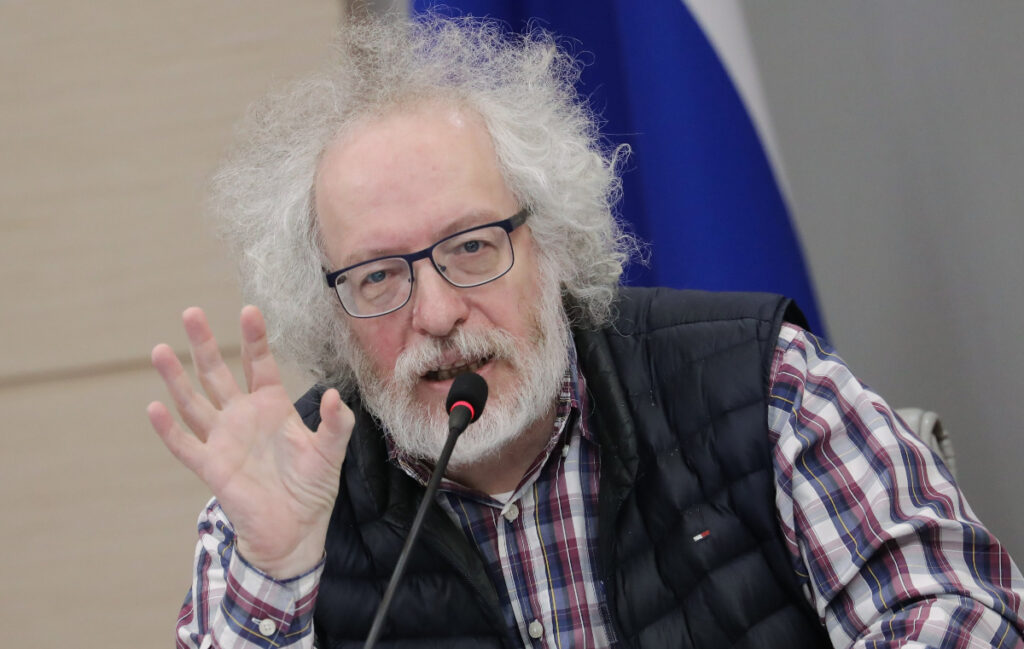
Top liberal journalist embroiled in #MeToo scandal
The BBC Russian Service published an in-depth profile (Rus) of prominent Russian journalist Alexey Venediktov on Thursday in which two women made allegations of sexual harassment. The editor-in-chief of liberal radio station Ekho Moskvy is the third public figure to face such accusations after top Duma deputy Leonid Slutsky and the editor-in-chief of media outlet Meduza, Ivan Kolpakov. The article led to a flurry of indignation on Facebook, but it looks like these will be the most serious consequences Venediktov will face.

- Two young women told stories of unwanted approaches by Venediktov in the BBC article. Anna Veduta, the former press secretary of opposition leader Alexey Navalny, said the then 56-year-old Venediktov gave her a ride home and, in the cab, touched her knees, moved his hands “higher”, insisted on walking her to her door, tried to kiss her and asked if anyone was home. Learning that her parents were, Venediktov left. Veduta was 22 years old at the time. Another activist spoke anonymously about how Venediktov put his hand on her knee at dinner and moved it up her leg. She said she couldn’t get up from the table, so she removed his hand, but he put it back again.
- Venediktov’s female colleagues at Ekho Moskvy described him in the article as “very touchy”. They said he would regularly touch female subordinates on the shoulders, kiss them on the cheek, stroke them, and call them “bunny, chick, or kitty”.
- After the article was published, Venediktov publicly apologized to Veduta, adding “he doesn’t even remember” the events she described, but that, even so, he has a “different point of view” about them. He categorically denied the accusations made by the second young woman, suggesting she simply “wants to find fame through his name” (even though the young woman remained anonymous).
- Venediktov’s friends said he always relished his reputation as a bon vivant, but what happened to his friend, Duma deputy Slutsky, changed his perspective. In 2018, three journalists spoke publicly about experiencing harassment from Slutsky, and one provided a recording confirming her accusations. Not only did Slutsky fail to apologize and keep his position, but he was recently appointed (Rus) president of a faculty at a prestigious Moscow university.
- Slutsky is by no means Venediktov’s only influential friend. Although Ekho Moskvy is critical of the regime, Venediktov is a frequent guest in the Kremlin, and his radio station is owned by the state-controlled Gazprom Media. For example, Venediktov’s political ties helped him play a central role in negotiating with the authorities last year to free investigative journalist Ivan Golunov who was arrested on false drug charges. According to the BBC Russian Service’s sources, Venediktov has good connections with City Hall, and is close to officials who even come to him for political advice.
- Russia’s other resonant #MeToo case was that of Ivan Kolpakov, the Meduza editor-in-chief, who in 2018 allegedly touched the buttocks of a colleague’s wife at a party, claiming “nothing will happen to me”. Kolpakov initially lost his job but was reinstated three months later. He disputes the accusations.
- The contrast with another recent scandal is telling. TV host Regina Todorenko defended (Rus) domestic violence in an interview last month. Admittedly, she apologized for saying “your husband beats you, and what did you do to prevent him from beating you up? And what did you do to make him hit you?” — but it was too late. Glamour magazines rescinded her Woman of the Year award and PepsiCo pulled out of an advertising contract.
Why the world should careThe lack of serious consequences for Venediktov, or Slutsky and Kolpakov, shows many Russians consider such behavior acceptable. But why did TV host Todorenko face such serious sanctions? Either people have stronger views on domestic violence than sexual harassment (which would be a new development for Russia), or society finds it easier to forgive men than women.



